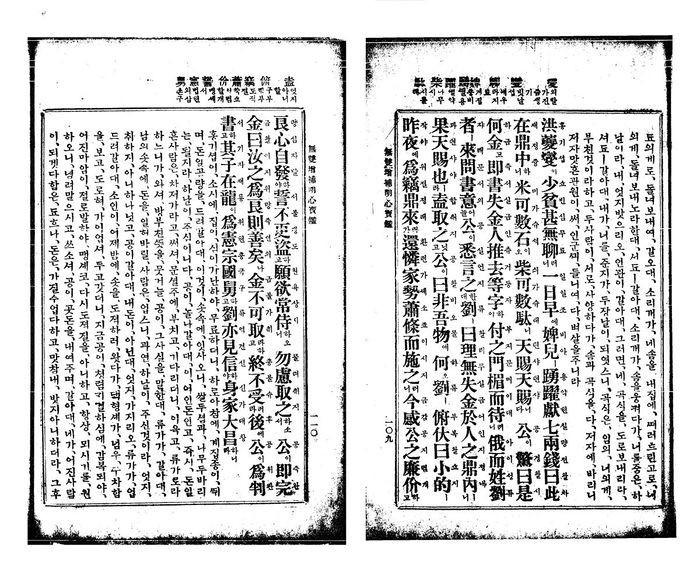"(Translation) 洪夔燮"의 두 판 사이의 차이
Julian Butterfield (토론 | 기여) (→Student Translation : (Julian Butterfield)) |
(→Student Translation : (Julian Butterfield)) |
||
| 36번째 줄: | 36번째 줄: | ||
# Is "Duke" an appropriate translation for 公 in a Korean context? | # Is "Duke" an appropriate translation for 公 in a Korean context? | ||
| + | (Fran): Isn't 劉 "Liu" instead of "Yu"? Also, I take Mr. Liu to be saying something like, "It's not reasonable that anyone would lose their money inside somebody else's cauldron" (理無失金於人之鼎內). I can't get the sense of how you've rendered that line here. | ||
[[Category:2018 Hanmun Summer Workshop]] | [[Category:2018 Hanmun Summer Workshop]] | ||
[[Category:Intermediate Training Group]] | [[Category:Intermediate Training Group]] | ||
2018년 7월 12일 (목) 20:02 판
| Primary Source | ||
|---|---|---|
 |
Title | |
| English | Hong Kisŏp | |
| Chinese | 洪夔燮 | |
| Korean(RR) | 홍기섭 | |
| Text Details | ||
| Genre | ||
| Type | ||
| Author(s) | 秋適 (Myŏngsim pogam 明心寶鑑) | |
| Year | 13~14C | |
| Source | ||
| Key Concepts | ||
| Translation Info | ||
| Translator(s) | Participants of 2018 Hanmun Summer Workshop (Intermediate Training Group) | |
| Editor(s) | ||
| Year | 2018 | |
Original Script
Translation
Student Translation : (Julian Butterfield)
When he was young, Duke Hong Kisŏp was poor and sorely unable to make ends meet. One morning, his maid leaped and jumped in to present him with seven ryang in coins and said, "These were inside the cauldron[1]—your rice will be measured in great quantity and firewood will be measured in horseloads. It's bestowed by heaven!" The Duke was apprehensive and said, "What is this gold?" and promptly composed a notice, writing "Would the person who lost their gold take it and leave," and so forth on it. He posted it on the lintel and waited. In a short while, a person named Yu came to ask the meaning of the notice, and when the Duke explained it all to him, Yu said, "Reasonably, it's not losing one's gold if it's within another's cauldron: it's the fruit of heaven's blessing. Why not take accept it?" The Duke said, "It is not my property." Yu prostrated himself and said, "Last night your lesser came to to steal your cauldron, but I so pitied the state and desolation of your house that I gave the gold: now I am moved by the Duke's honesty and goodness, and my conscience stirs of its own accord: I swear I will never again steal, and wish to constantly wait upon you. Stop considering it and accept it!" The Duke immediately returned the gold and said, "Your doing good things is excellent. This gold I cannot accept, and to the end I won't take it." Later, the Duke became a primary minister and his son, Jaeyong, became Hongjong—the state father-in-law. Yu also became trusted, and both himself and his house were greatly wealthy.
- Discussion Questions:
- Did anyone find the exact (or ballpark) measurement that 石 indicates here?
- What's the precise title for 判書? I seemed to have missed this in my notes. Also, can anyone clarify if 國舅 is an official title (and should be capitalized?).
- I really struggled to find an English phrase that worked for 甚無聊: does my translation seem too far away (in sense at least) from the original?
- Is "Duke" an appropriate translation for 公 in a Korean context?
- ↑ I've decided to use "cauldron" instead of "pot" here to give a sense of the 鼎's value and desirability for Mr. Yu.